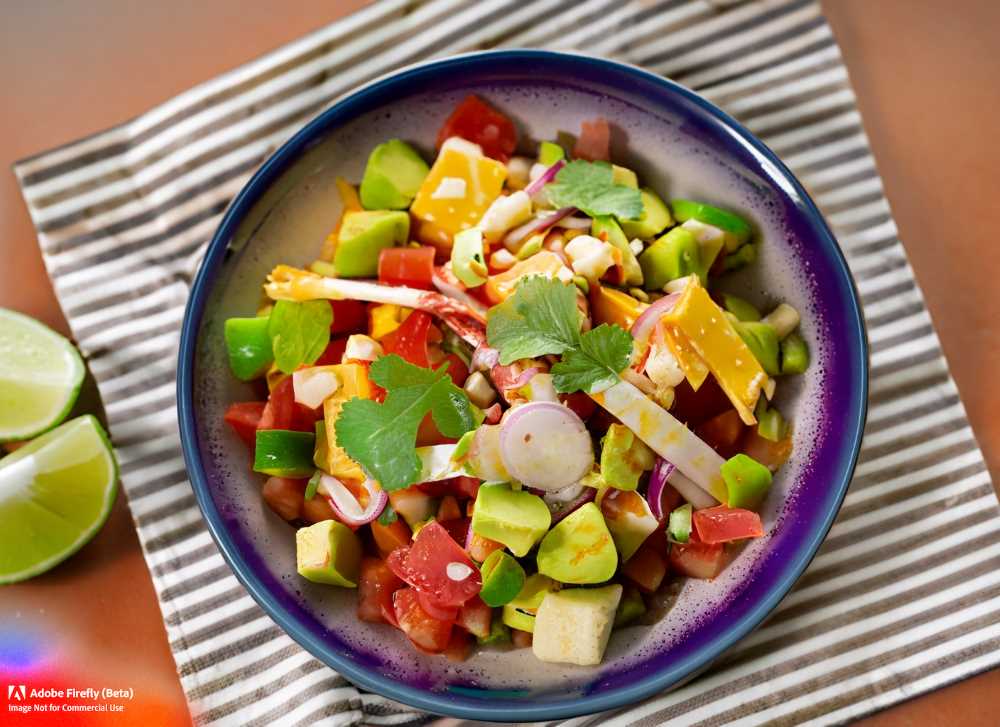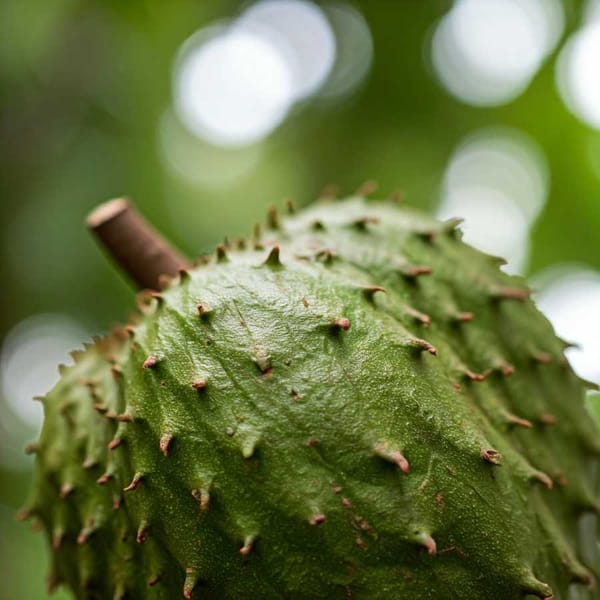How to Incorporate Mexican Superfoods into Your Diet
Discover the nutrient-dense and delicious world of Mexican superfoods! From chia seeds to avocados to black beans, learn about the health benefits and cultural significance of these flavorful ingredients.

Mexican cuisine has a reputation for its vibrant flavors, bold spices, and hearty portions. But did you know that Mexico is also home to a variety of superfoods? These are nutrient-dense foods that provide multiple health benefits, making them an excellent addition to any diet. In this article, we'll explore some of the most popular Mexican superfoods and their nutritional benefits.
Chia Seeds
Chia seeds are one of the most popular superfoods in Mexico and for good reason. These tiny black and white seeds are packed with fiber, protein, and omega-3 fatty acids. They can be added to smoothies, yogurt, or oatmeal to boost the nutritional value of your meals. Chia seeds also help to regulate blood sugar levels, improve digestion, and promote healthy skin.
Avocado
Avocado is another popular Mexican superfood that has gained worldwide popularity. This fruit is a rich source of heart-healthy monounsaturated fats, fiber, and potassium. It's also high in vitamin K, which is essential for bone health. Avocado can be added to salads, sandwiches, or smoothies, or used as a healthy alternative to butter or mayonnaise.
Cacao
Cacao is the raw form of chocolate and has been used in Mexican cuisine for thousands of years. It's a rich source of antioxidants, magnesium, and iron. Cacao can be used in baking or added to smoothies for a healthy boost of energy. It's also been shown to improve mood and cognitive function.
Nopal
Nopal, also known as prickly pear cactus, is a staple of Mexican cuisine. It's a good source of fiber, vitamin C, and antioxidants. Nopal has been used for centuries to treat a variety of ailments, including diabetes and high cholesterol. It can be added to salads, soups, or stews, or used as a healthy alternative to tortillas.
Black Beans
Black beans are a staple of Mexican cuisine and are packed with protein, fiber, and essential vitamins and minerals. They're a good source of iron, magnesium, and folate, which is important for fetal development. Black beans can be used in soups, stews, or salads, or mashed into a dip.
Tomatillo
Tomatillos are a small green fruit that's a staple in Mexican cooking. They're a good source of vitamin C, potassium, and fiber. Tomatillos can be used to make salsa, sauce, or soup, or roasted and added to salads or sandwiches.
Pinto Beans
Pinto beans are another popular bean in Mexican cuisine and are a good source of protein, fiber, and essential vitamins and minerals. They're a good source of folate, which is important for fetal development, and iron, which is important for maintaining healthy blood cells. Pinto beans can be used in soups, stews, or salads, or mashed into a dip.
Guava
Guava is a tropical fruit that's a rich source of vitamin C, potassium, and fiber. It's also high in antioxidants and has been shown to improve digestion and boost the immune system. Guava can be eaten fresh or used in smoothies, salads, or desserts.
Jicama
Jicama is a root vegetable that's native to Mexico and has a slightly sweet and crunchy texture. It's a good source of fiber, vitamin C, and potassium. Jicama can be sliced and eaten raw as a snack, or used in salads or stir-fries.

How to Incorporate Mexican Superfoods Into Your Diet
There are many ways to incorporate Mexican superfoods into your diet. You can add them to your favorite dishes, or you can enjoy them on your own. Here are a few ideas:
- Add avocado to your breakfast toast, oatmeal, or smoothie.
- Sprinkle chia seeds on your cereal, yogurt, or salad.
- Add cacao powder to your coffee, tea, or oatmeal.
- Cook beans in your favorite soup, stew, or chili.
- Grill or roast nopales and serve them with your favorite toppings.
- Make a smoothie with spirulina, banana, and almond milk.
- Apply aloe vera gel to your skin after a sunburn or to soothe a cut or scrape.
- Add tomatillos to your favorite salsa, guacamole, or enchilada sauce.
By incorporating Mexican superfoods into your diet, you can improve your overall health and well-being. So next time you're at the grocery store, be sure to pick up some of these nutrient-rich foods.
Conclusion
Mexican superfoods are not only delicious but also packed with nutrients that provide multiple health benefits. From chia seeds to avocados to black beans, there are many options to choose from to add some Mexican flair to your meals. By incorporating these superfoods into your diet, you can improve your overall health and well-being.
In addition to their nutritional benefits, many Mexican superfoods also have cultural and historical significance. For example, cacao has been used in Mexican culture for centuries in religious and medicinal ceremonies. Nopal has been used for its medicinal properties by indigenous people in Mexico for thousands of years.
It's important to note that while these superfoods are nutritious, they should be consumed as part of a balanced diet. Eating a variety of fruits, vegetables, whole grains, and lean proteins is essential for overall health.
Mexican superfoods are a delicious and nutritious way to add some variety to your diet. Whether you're adding chia seeds to your morning smoothie or using avocados as a healthy fat in your sandwich, these foods provide a multitude of health benefits. So, why not add some Mexican flair to your next meal and try out some of these delicious superfoods?




